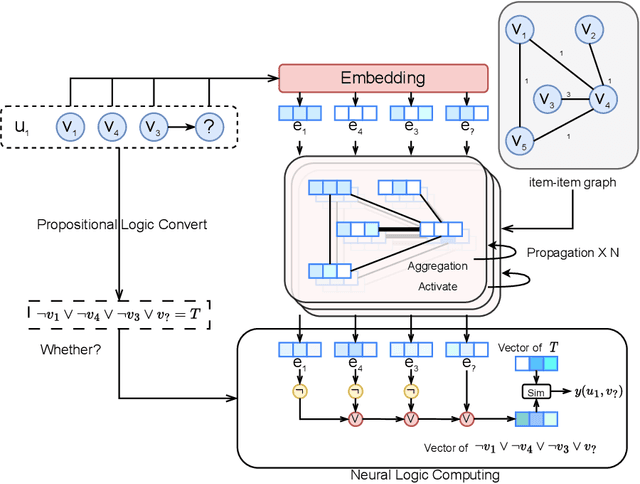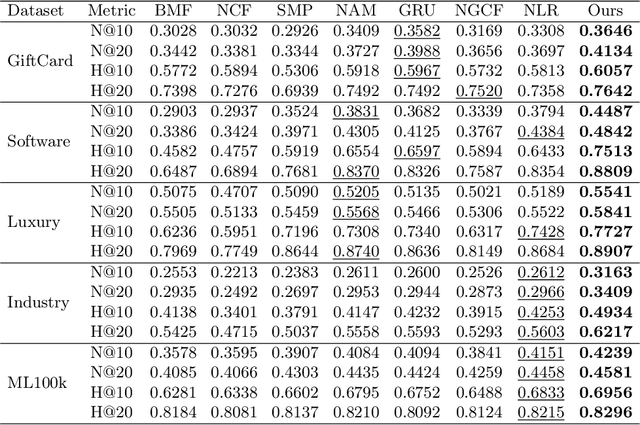Neural-Symbolic Recommendation with Graph-Enhanced Information
Paper and Code
Jul 11, 2023



The recommendation system is not only a problem of inductive statistics from data but also a cognitive task that requires reasoning ability. The most advanced graph neural networks have been widely used in recommendation systems because they can capture implicit structured information from graph-structured data. However, like most neural network algorithms, they only learn matching patterns from a perception perspective. Some researchers use user behavior for logic reasoning to achieve recommendation prediction from the perspective of cognitive reasoning, but this kind of reasoning is a local one and ignores implicit information on a global scale. In this work, we combine the advantages of graph neural networks and propositional logic operations to construct a neuro-symbolic recommendation model with both global implicit reasoning ability and local explicit logic reasoning ability. We first build an item-item graph based on the principle of adjacent interaction and use graph neural networks to capture implicit information in global data. Then we transform user behavior into propositional logic expressions to achieve recommendations from the perspective of cognitive reasoning. Extensive experiments on five public datasets show that our proposed model outperforms several state-of-the-art methods, source code is avaliable at [https://github.com/hanzo2020/GNNLR].
 Add to Chrome
Add to Chrome Add to Firefox
Add to Firefox Add to Edge
Add to Edge